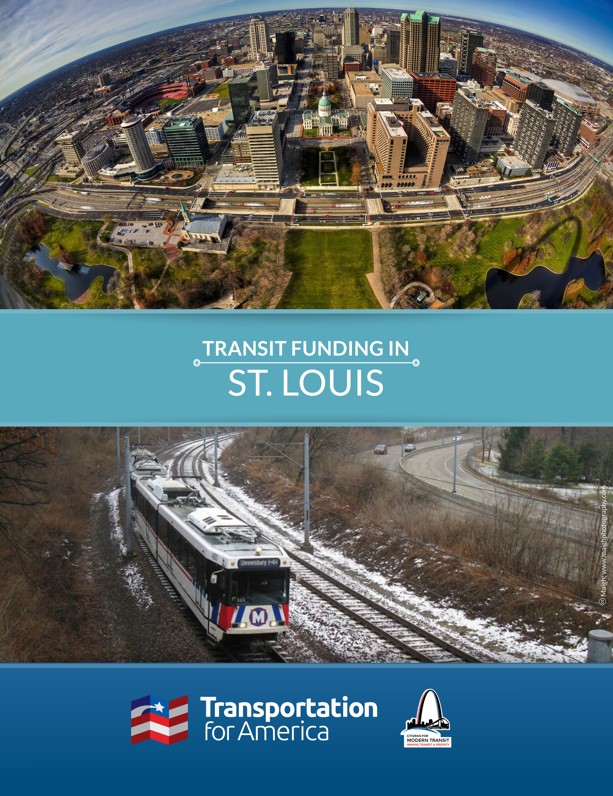
Investment in transportation is the key to moving Missouri forward. The recent release of the Ferguson Commission Report highlights transportation among the report’s more than three dozen “signature priorities” under the category that addresses economic opportunity. These recommendations provide Missouri and Governor Nixon an opportunity to step up for transit and make a difference in this region and state.
Last year Missouri transportation providers received little more than $500,000 for transit operations from the state, and Metro transit received only a fraction of that. Currently, the State of Missouri ranks near the bottom of the list for funding of public transit. However, the facts show investment in transit increases access to education and health care, creates development opportunities and jobs, and provides reinvestment in disadvantaged areas of our state. According to the American Public Transit Association, for every dollar invested in transit projects there is a $4 return for the state.
While the Ferguson Commission report explicitly acknowledges that race plays a major role in the inequality experienced across the St. Louis region, the report also recognizes that “A safe, reliable, affordable, and efficient public transportation system can increase access to health care, education, and employment,” and that “Public transit is a key to expanding opportunity for all St. Louisans.” These opportunities would be afforded to the entire state with a state investment plan for transit.
The Commission directly calls for Missouri to develop a state funding plan for public transportation projects. The report notes in the St. Louis region a shortage of funding is a significant reason keeping St. Louis from pursuing any transit expansion. A state funding plan is essential to compete for necessary federal funding, and such a plan will make Missouri eligible for federal matching funds for transportation infrastructure.
According to the Missouri Public Transit Association, more than 77 million rides are given each year from transit providers in the state, and they employ thousands of Missouri residents. In St. Louis alone, more than 75 percent of the daily boardings on transit are for the work commute while Metro/Bi-State Development receives little more than $200,000 from the State of Missouri towards its $250 million plus annual budget.
CMT strongly urges Governor Nixon to look at developing a state investment plan for transit and make public transit a priority for Missouri. In addition, we encourage CMT members and transit supporters to reach out to Governor Nixon and members of the House Transportation Committee and Appropriations – Revenue, Transportation, and Economic Development and the Senate Transportation, Infrastructure, and Public Safety Committee.